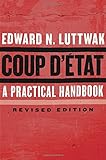* Office of the Director of National Intelligence (ODNI)
* Central Intelligence Agency (CIA)
* National Security Agency (NSA)
* Office of Intelligence and Counterintelligence (OICI)
* Border and Customs Service Intelligence Unit [Homeland]
* US Coast Guard Intelligence [Homeland]
* Office of Homeland investigations [Homeland]
* Bureau of Intelligence and Research (INR) [State]
* Office of Terrorism and Financial Intelligence [Treasury]
* Defense Intelligence Agency (DIA) [Defense]
* National Geospatial-Intelligence Agency (NGA)
* National Reconnaissance Office (NRO)
* US Cyber Command
* US Air Force Intelligence, Surveillance and Reconnaissance Agency (ISR)
* National Air and Space Reconnaissance Center (NASIC)
* US Army Intelligence and Security Command (INSCOM)
* National Ground Intelligence Center (NGIC) [Army]
* US Marine Core Intelligence Activity (MCIA)
* US Navy Department's Office of Naval Intelligence (ONI)
* FBI National Security Branch [Justice]
* Office of National Security Intelligence of Drug Enforcement Administration (ONSI DEA) [Justice]
Coup d'État: A Practical Handbook, Revised Edition (2016) by Edward N. Luttwak. Pages 60-62
The first edition (1968) is timeless, but the revised edition (2016) is amazingly on-point and is updated to reflect the structural changes which have occurred in the half century since it's first printing. It's only 300-odd pages, highly recommended.
A coup has to succeed within the first few hours. Control must be established before opposition mobilizes. If the coup drags on, it fails. Failure is either a loss or a civil war.
Suggested reading: "Coup d'État: A Practical Handbook"[1]

This thing in Belarus here is no coup, it has no chance to succeed.
[1] https://www.amazon.com/Coup-d%C3%89tat-Practical-Handbook-Re...